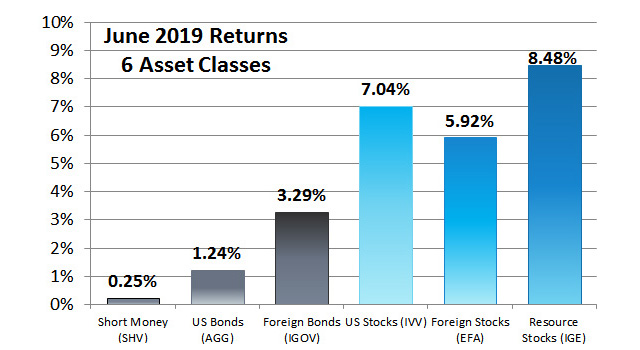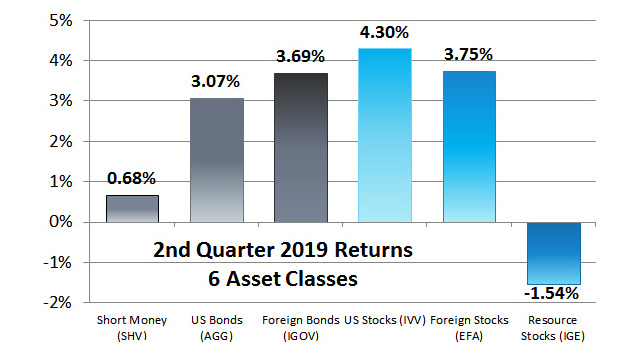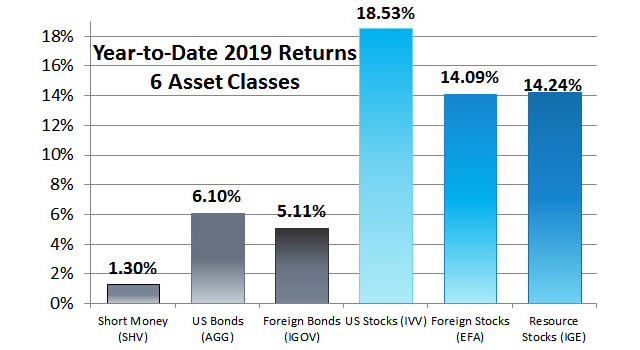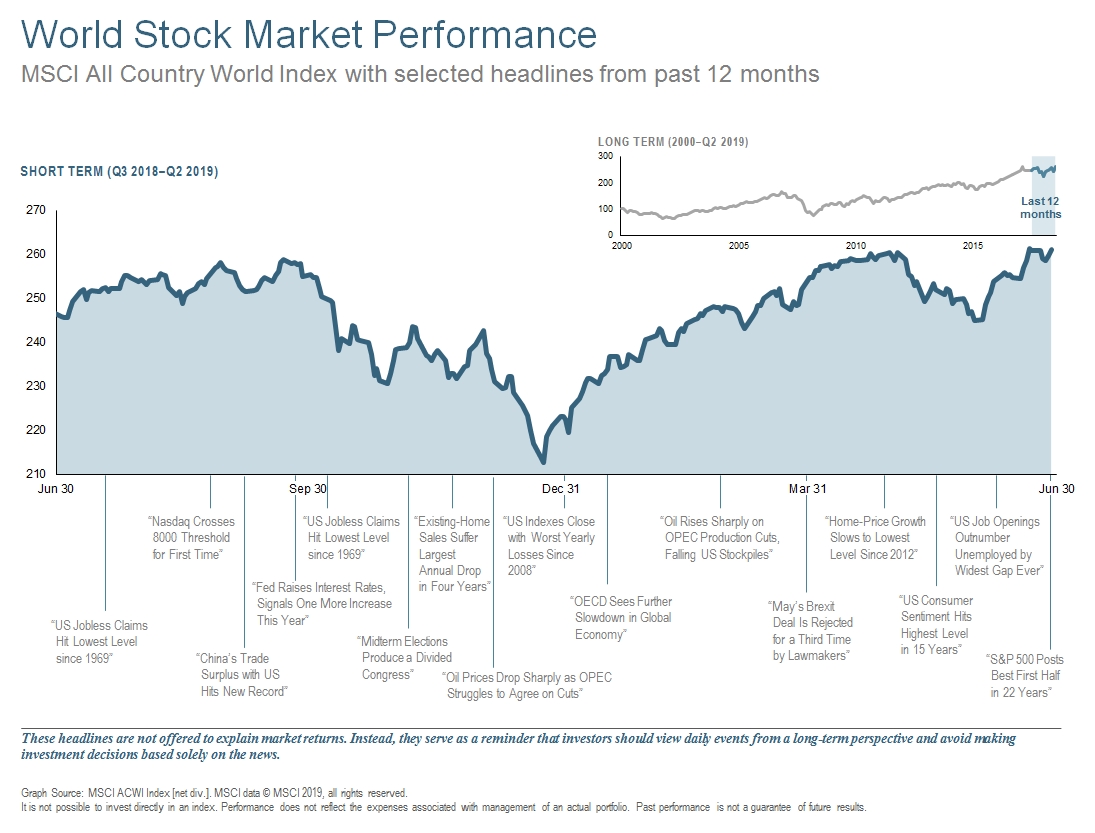From a new all-time high of 2,930.75 on September 20, 2018, the stock market dropped precipitously. By the time it bottomed on December 24, 2018 at 2,351.10 the S&P 500 Price Index was down -19.78%. This was the Almost Bear Market of 2018. During the second quarter of 2019, the U.S. Stock Market rose from those lows set by that 2018 trough.
Here are the returns for the month of June 2019 for the six asset classes as represented by six iShares exchange traded funds (ETFs):

As you can see, the month of June posted gains for all six asset classes.
After the prior down months, many investment pundits were suggesting that a down turn in the markets is inevitable and imminent.
Regardless of if the market does turn down, we believe that jumping in and out in an attempt to time the markets is a foolish investment strategy. We suggest you disregard the monthly noise, so as to not ruin an otherwise brilliant investment strategy. Don’t let your fear of the future ruin your financial future. Even bad market timing is better than not investing. It is always a good time to have a balanced portfolio.
Although there were losses earlier in the second quarter, June’s returns more than compensated for them. Here are the returns for the quarter for each of the six ETFs representing each of the six asset classes:

As you can see, all of the asset classes, except Resource Stocks, finished the quarter with a gain. These solid returns added to the returns of the first quarter to produce these impressive gains year to date (Jan 2019 – June 2019):

As you can see, all six asset classes had impressively high, positive gains so far for the first half of 2019. By the end of June the S&P 500 Price Index had crossed a new high closing at 2,941.75. And on July 12, 2019 the S&P 500 closed above 3,000 for the first time.
To put these positive returns in perspective, here is a chart showing the World Stock Market Performance over the past 12 months as represented by the MSCI All Country World Index:
Last year at the end of 2018, stocks were down considerably. Now in 2019, stocks have recovered.
The relative low of the market on December 24th, 2018 can be clearly seen in the main chart. However, in the small inset at the upper right, you can see how even that significant drop appears minor when viewed on a chart from the year 2000 forward.
As always, we believe it is a mistake to let your emotions guide your investment strategy.
When faced with disappointing returns, the question to ask yourself is, “Do you have sufficient data to justify the long-term mean returns you want?” If you worry that you do not, take the time to reevaluate your investment selection to see if you made a mistake.
During the portfolio construction process, look for sectors with a high expected return, a low volatility, and a low correlation with other components of your portfolio. Then, when you experience the volatility ask yourself if it behaved as you expected. It is common for investors to be surprised by movements in their portfolios. Short-term market movements are like the end of a whip being cracked up and down; the market can easily and frequently move in either direction.
If you find yourself constantly fretting over market movements, you may benefit from reading our article “Diagnostic Tool: What Are Normal Market Movements?” It is an in-depth analysis of what is normal to help settle your nerves.
